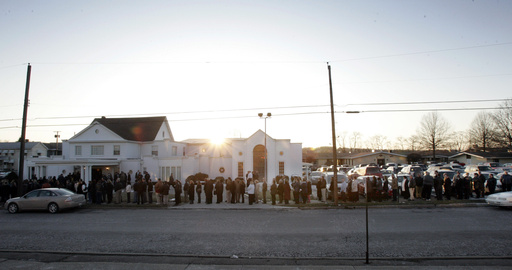
More than six years after his exoneration due to a lack of evidence, a man who was accused at just 11 years old of fatally shooting his father’s pregnant fiancée is now seeking compensation from the Pennsylvania State Police. Jordan Brown, who was once charged as a child, is taking his case to a federal jury in Pittsburgh, set to begin next month. This legal battle has gained attention nearly 16 years following the tragic death of Kenzie Marie Houk, which occurred in their rented farmhouse in Wampum, Pennsylvania, in February 2009.
Pennsylvania lacks laws that compensate individuals wrongfully convicted, which leaves Brown pursuing a lawsuit to address claims against four former state troopers who allegedly fabricated evidence and reports against him. Now 27, Brown was previously found delinquent in juvenile court for first-degree murder and the homicide of an unborn child. He spent time in juvenile detention until he was released at the age of 18. In July 2018, the state Supreme Court overturned his conviction on the grounds of insufficient evidence.
The lawsuit targets four former troopers — one of whom has since passed away — who played significant roles in the investigation. These officers conducted interviews and wrote the affidavit that was instrumental in charging Brown. Brown’s allegations assert that these actions were violations of his federal civil rights due to the absence of probable cause for the charges and the alleged fabrication of evidence. In response, state police spokesperson Myles Snyder stated that the agency would not offer comments regarding the pending litigation, adhering to their policy.
The former troopers contend they acted within the law, claiming there was adequate probable cause when they arrested Brown based on the circumstances surrounding the case, including his possession of a shotgun. Brown is seeking damages for emotional distress, loss of earnings, legal expenses, and the time he spent in custody. His attorney, Alec Wright, commented on the profound impact of this experience on Brown’s formative years, highlighting the difficult choice he faced between succumbing to despair or trying to persevere through a challenging reality.
The National Registry of Exonerations has documented approximately 800 civil awards since 1989, totaling around $3.3 billion, which averages about $325,000 for each year of wrongful imprisonment. In Pennsylvania, 32 civil awards have been recorded, amounting to a collective $110 million. However, Brown’s case is not included on this registry due to its criteria, which require evidence favorable to the defendant that was not shown during the trial. His juvenile adjudication was vacated based solely on insufficient evidence.
Legal expert Jeffrey Gutman emphasized the difficulty of fully comprehending the trauma experienced by individuals like Brown, who have lost significant aspects of their lives to wrongful convictions. The emotional toll can be immense, with lost connections to family, disrupted livelihoods, and potential lasting effects on health. He noted society has a responsibility to provide remedies for those who have faced such unfair circumstances.
Jordan and his father, Chris Brown, were living with Houk and her two young daughters when the shooting took place. Chris was cleared as a suspect after leaving for work on that fateful day. Police focused on the theory that young Jordan, then a fifth-grader, used a youth-model shotgun to commit the crime before he and Houk’s older daughter headed to catch the school bus.
The case unfolded dramatically when a crew collecting firewood discovered the 4-year-old girl crying alone at the front door. By the following day, Brown was charged as an adult, although the case was subsequently moved back to juvenile court. In a 2012 adjudication, Brown was found delinquent, which is essentially the juvenile equivalent of a guilty verdict in Pennsylvania.
Jennifer Kraner, Houk’s sister, expressed her belief in Brown’s guilt, sharing her feelings about the inability to find justice after the loss of her sister. She questioned the fairness of the situation, indicating discomfort with the idea of Brown being financially rewarded from this tragedy.
Testimonies from a 7-year-old girl contributed significantly to the prosecution’s case, as she reportedly claimed that she saw Jordan with two guns before hearing a loud noise. However, Brown’s legal team argued that the inconsistencies in these interviews undermined their reliability.
The Pennsylvania Supreme Court, in unanimously vacating Brown’s conviction, noted the complete lack of eyewitness testimony or physical evidence linking him to the crime. Investigations into Houk’s former boyfriend revealed he had been a person of interest but was cleared based on evidence. Allegations arose from a history of threats he made towards Houk and others, yet he denied these claims during the proceedings.
While the former boyfriend provided alibis, including a claim about being in a different location that night, the lack of gunshot residue on his hands and physical evidence at the crime scene left questions unanswered. Brown had previously noted a black pickup truck on the property that matched the boyfriend’s vehicle, but Wright argues that little has been done to investigate this case further since Brown’s exoneration. Local district attorneys have not provided comments on the ongoing matter.
Brown hopes that a favorable outcome could finally clear any lingering doubts regarding his innocence. Now, he operates a beer distribution business with his father in western Pennsylvania and aims to complete his college education in the future. He remains resolute in his pursuit of justice and accountability.

